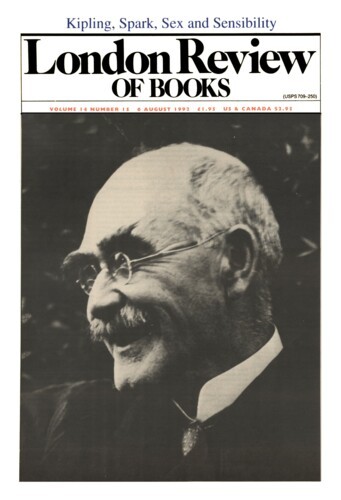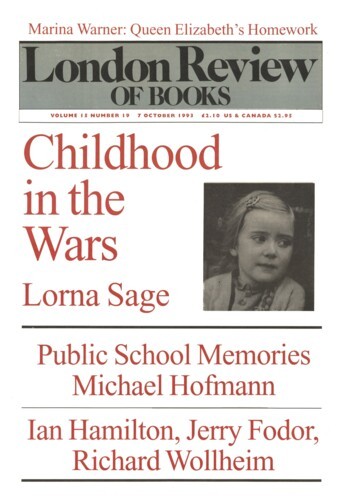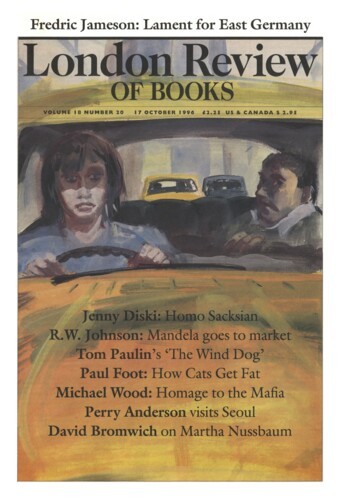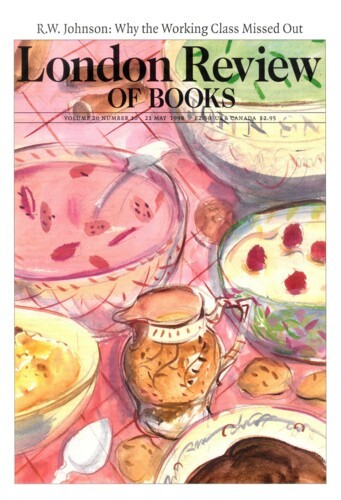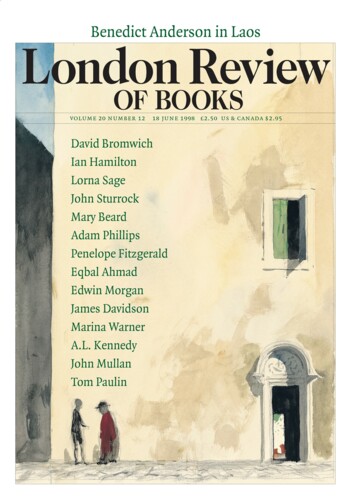Narcissus and Cain
David Bromwich, 6 August 1992
‘Sensibility’ was the name of a faculty before it was the name of a style. On the divide of the physical and mental, it suggested a power to receive life’s pleasures and pains, and a less certain power to judge their worth. Such was the critical usage of the late 18th century, largely derived from Hume. Popular usage went further and has lasted longer. Taste in action, and on perpetual display, good taste, in fact, run riot – sensibility in this range of meaning tended to imply a misplaced connoisseurship. Its fictional heroes and heroines, who thought that ‘moral nuances’ of character could be picked out with the same equipment one used to admire the picturesque gradations of a landscape, got into their usual scrapes with society because they were easily bored. Enemies of routine, they craved what they called the unexpected.’
